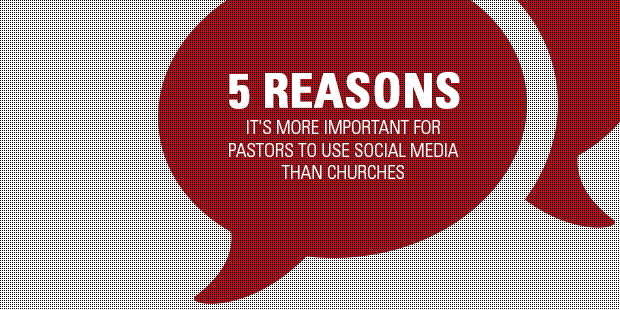
2 Things to Remember When Leading Creative People
What do these 4 films have in common? Up, Inside Out, Toy Story 3, Monsters Inc.
- They Are All Hit Movies from Pixar
- They Have Highly Compelling Stories
- They Are Kids Movies that Make Grown Men Cry
- All of the Above
Pixar Studios tells a story like no other team of creatives, anywhere. In fact, if you can watch this clip of Carl & Ellie’s love story in UP without crying you have a heart of stone.
Recently, I read the story of Pixar, entitled Creativity, Inc., authored by Ed Catmull. Ed is a co-founder of Pixar and president of both Pixar and Disney Animation Studios. Creativity, Inc. is a fascinating book to me both as a participant in the creative process (possessing a design degree in Architecture) and a fan of the stories that Pixar tells (possessing every DVD from Toy Story through Monsters University).
I have also struggled to lead and pastor creative teams well during my ministry years. Suffice it to say that I had to fire a couple of worship leaders along the way, both of whom were poorly hired and poorly led, to be honest. I read Catmull’s book accordingly, as a process developer and pastoral leader, in order to understand and help other leaders develop and nurture a depth of creativity in their creative teams.
As anyone who regularly pastors or leads creatives knows, harnessing artists and individuals to accomplish a singular vision can be a complicated endeavor. While great content on navigating the often-choppy waters of developing creative teams stands out in the reading of Creativity, Inc., as I went back and reviewed my Kindle highlights, two clear-cut needs in the complexity of pastoring creatives began to emerge.
Need #1. The Need to Work Your Hardest on Building the Team, not the Idea
Ideas come and go, and let me risk being the first to ever tell you as pastor, that your ideas are not as great as you think they are. Every senior leader needs a great team of creatives around them to develop and execute even the very best of ideas. If you are ideating and executing creativity on your own, even in a church of 100, you are likely spending your time on the wrong things. Pastors who tend to be solo acts in the creative sphere are generally lacking in other key leadership areas – I know… I have been one myself.
“Getting the team right is the necessary precursor to getting the ideas right.”
“Getting the right people and the right chemistry is more important than getting the right idea.”
“Ideas come from people. Therefore, people are more important than ideas.”
“Find, develop, and support good people, and they in turn will find, develop, and own good ideas.”
Great teams should be…
… Balanced in collaboration style, this post describes creative team balance.
… Blended in perspective and ability, break the homogeny, invite risk into the room.
… Built with no freeloaders, including you.
Everyone should have a role to play in the meeting and nobody should walk away from a creative meeting without something to do, create or execute.People without skin in the game tend to either naysay and tear apart good ideas or push toward impossible unachievable goals in creative meetings.
Building the team needs hard work because a poorly constructed creative team will struggle to help a good idea… but a well-built team can rescue any bad idea. If a pastor will spend more time and energy investing in the people above the ideas, they will reap the return of engaged leaders, along with highly creative experiences in which to share the power of the Gospel.
Need #2. The Need to Celebrate Your Loudest over Discipleship, Not Attendance
Seems overly simplistic to state, but the reminder is worth hearing again, that our Great Commission calling is not “go and have great services,” or “go and be highly creative,” or “go and blow people away with your team’s ability to create.” The clear call is to make disciples, teaching them to go and do the same. In the end, even the best team, developing and executing the greatest ideas, fails if all we have done is pull off a cool moment or memorable service.
I have observed and participated in creative teams when next steps after the service we were planning were an afterthought, if even thought–of at all. It was time, effort and resources spent in doing something remarkable rather than developing someone replicatable. Often, the accelerating downward spiral of being the Buzz Church places a higher value on output from skilled leaders, than input needed to develop leadership in valuable people.
Catmull tells the story in Creativity, Inc. of leading the Pixar team to work hard toward an almost impossible deadline, and team responded as everyone worked beyond his or her limits, even to the detriment of their own health. The wakeup call came one day when a team member, being so tired and burnt out, forgot to take their child to daycare and left them in the car. Immediately no deadline or project was more important than the health of the team members. In the church, no creative element or programed event can become more important than the resultant output of growth as disciples for those service attenders or event participants.
“…we had failed them—causing them pain by putting them in a position they weren’t ready for.”
“…it is the focus on people—their work habits, their talents, their values—that is absolutely central to any creative venture.”
“If we are in this for the long haul, we have to take care of ourselves, support healthy habits, and encourage our employees to have fulfilling lives outside of work.”
Highly creative teams often walk the line between catching converts “out there,” by leveraging their potential to reach and impact from the community and the opposing need of developing leaders “in here,” by leaning into the potential to lead and grow IN community.
There exists in every church a need to focus on outreach and marketing. The greater priority is multiplying your pastoral leadership and growing the people right around you in their relationship with Christ. The investment of Jesus’ leadership throughout the Gospels, was not directed toward drawing the largest crowd of people, but to developing the closest group of disciples.
Remembering these clear-cut needs, to work the hardest on the team itself and celebrate the loudest over disciples made, can help keep the complexity minimized when leading creative teams toward their greatest Kingdom success.
Would you like to learn more about leading a creative team? Connect with an Auxano Navigator and start a conversation with our team.
Tags: Bryan Rose, Creative People, Creatives, Creativity Inc


































